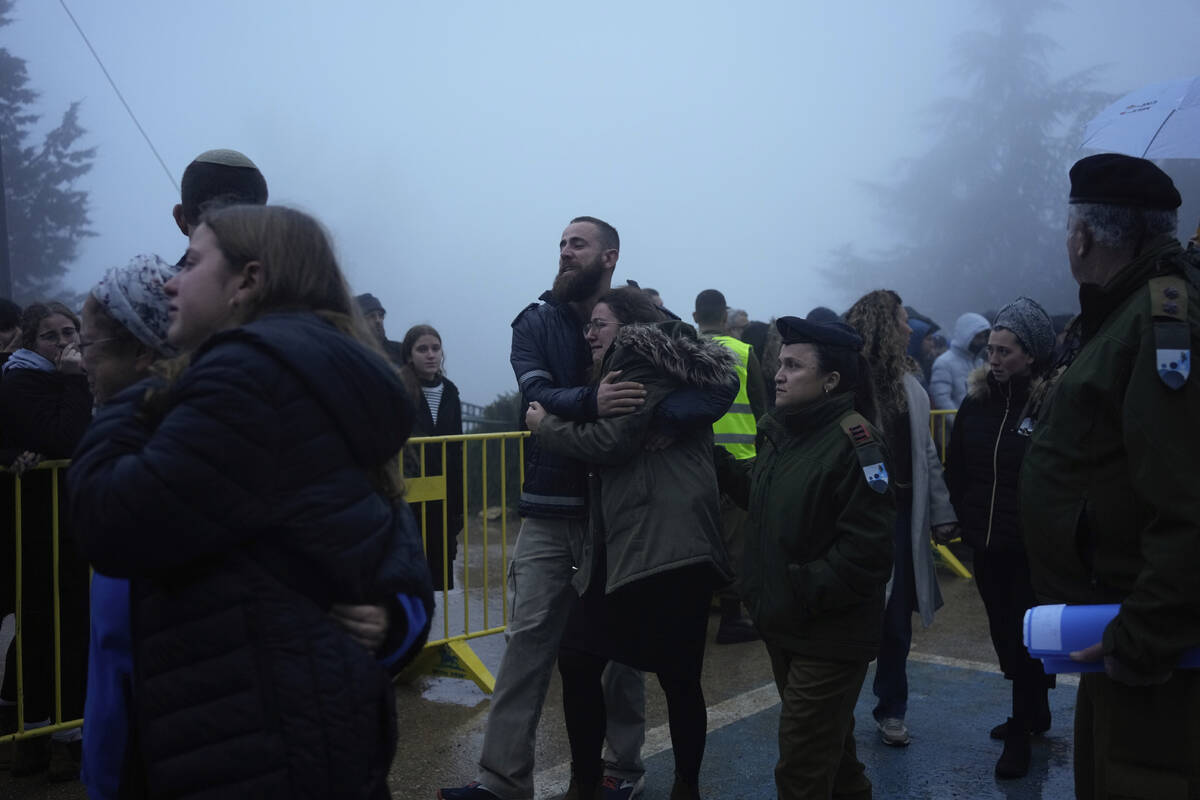21 Israeli troops killed in deadliest attack on military since Gaza offensive began

JERUSALEM — Palestinian terrorists carried out the deadliest single attack on Israeli forces in Gaza since the Hamas raid that triggered the war, killing 21 soldiers, the military said Tuesday.
Hours later, the military announced that ground forces had encircled the southern city of Khan Younis, Gaza’s second largest. Witnesses said Israeli tanks and troops had also moved into Muwasi, a nearby coastal area.
Prime Minister Benjamin Netanyahu mourned the Israeli soldiers, who died when the blast from a rocket-propelled grenade triggered explosives they were laying to blow up buildings. But he vowed to press ahead until “absolute victory,” including crushing Hamas and freeing more than 100 Israeli hostages still held by the terrorists.
In the wake of Hamas’ Oct. 7 terrorist attack, outraged Israelis set aside long simmering political differences and rallied behind the war. More than 100 days later, divisions are re-emerging, and anger is growing over Netanyahu’s conduct of the war. Families of the hostages have called for Israel to reach a deal with Hamas, saying time is running out to bring their relatives home alive.
A senior Egyptian official said Israel has proposed a two-month cease-fire in which the hostages would be freed in exchange for the release of Palestinians imprisoned by Israel and top Hamas leaders in Gaza would be allowed to relocate to other countries.
The official, who was not authorized to brief media and spoke on condition of anonymity, said Hamas rejected the proposal and insists no more hostages will be released until Israel ends its offensive and withdraws from Gaza. Israel’s government declined to comment on the talks.
Egypt and Qatar — which have brokered past agreements between Israel and Hamas — were developing a multistage proposal to try to bridge the gaps, the official said.
Israeli reservists were preparing explosives Monday to demolish two buildings outside central Gaza’s Maghazi refugee camp, near the Israeli border, when a terrorist fired a rocket-propelled grenade at a tank nearby. The blast triggered the explosives, collapsing both two-story buildings onto the soldiers.
Israeli media said the troops were working to create an informal buffer zone, about a half-mile wide along the border to prevent terrorists from attacking Israeli communities near Gaza. Military spokesman Daniel Hagari said the mission was to clear buildings to “create the conditions” that would allow the residents of the south to return to their homes.
The United States has said it would oppose any attempt by Israel to shrink Gaza’s territory.
Throughout the war, Israeli troops have used controlled detonations to destroy structures that the military says hide Hamas tunnels or have been used by terrorists as firing positions. Blasts have destroyed entire city blocks, apartment complexes, government buildings and universities.
At least 217 soldiers have been killed since the ground offensive began in late October, including three killed in a separate event Monday, according to the military.
Netanyahu acknowledged on social media that it was “one of the hardest days” of the war but vowed to keep up the offensive.
“We are in the middle of a war that is more than justified. In this war, we are making big achievements, like the encircling of Khan Younis, and there are also very heavy losses,” he later said in a video statement.
Israel launched its offensive after Hamas terrorists crossed the border Oct. 7, killing over 1,200 people and abducting some 250 others. More than 100 were released in November during a weeklong cease-fire.
The offensive has killing at least 25,490 people, according to the Hamas-run Health Ministry in Gaza. Its count does not differentiate between civilians and combatants.
Israel’s offensive has focused for weeks on Khan Younis and several urban refugee camps in central Gaza, after the military said it had largely defeated Hamas terrorists in the north.
Israel believes Hamas commanders may be hiding in tunnels beneath Khan Younis, the hometown of the group’s top leader in Gaza, Yehya Sinwar, whose location is unknown.
———
Magdy reported from Cairo and Jobain from Rafah, Gaza Strip. Associated Press writer Melanie Lidman in Jerusalem contributed to this report.